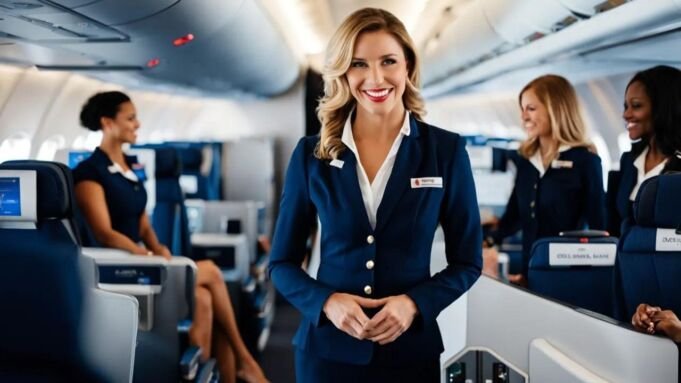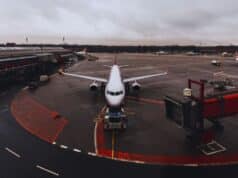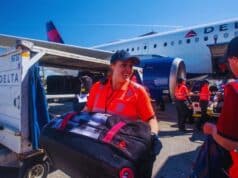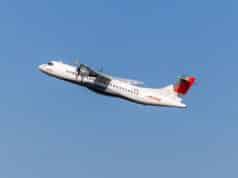Hi there! Are you considering applying for a job with Delta Airlines? If so, this article is designed to provide you with detailed insights into the Delta flight attendant salary and benefits. We ensure that all the information is regularly updated to keep you informed.
Delta Air Lines stands as a titan in the aviation industry, renowned for its extensive network that spans across the globe, connecting continents with over 5,400 flights daily. As a cornerstone of the airline’s operations, flight attendants play a pivotal role in ensuring the safety, comfort, and satisfaction of millions of passengers each year. Their dedication and service are integral to the airline’s reputation for excellence. This article delves into the financial aspects of being a flight attendant at Delta, offering insights into salaries, benefits, and the various factors that influence earnings in this esteemed profession.
Overview of a Flight Attendant’s Role
Flight attendants at Delta Air Lines are the face of the airline, embodying its values and commitment to customer service. Their responsibilities extend beyond serving beverages and snacks; they are trained professionals responsible for the safety and security of passengers. From conducting pre-flight safety checks and demonstrations to managing in-flight emergencies, their duties are comprehensive and critical.
The significance of flight attendants goes beyond safety procedures; they are essential in creating a comfortable and pleasant flying experience. This includes addressing passengers’ needs, managing conflicts, and ensuring a welcoming environment for everyone on board.
To join the ranks of Delta’s esteemed flight crew, candidates must meet specific qualifications and demonstrate a range of skills. These include a high school diploma or GED, proficiency in English, the ability to swim, and exceptional interpersonal and communication skills. Delta also values adaptability, a positive attitude, and a customer-oriented approach.
Delta Airlines Flight Attendant Salary
If you’re aspiring to join Delta Airlines as a new flight attendant, you can anticipate an annual salary ranging approximately from $60,000 to $95,000, along with additional benefits. Furthermore, you’ll receive extra hourly compensation for time spent on flights, which is a significant perk.
Moreover, when you’re on duty and away from your base location or in another country, Delta Airlines provides accommodations and meals for you.
Note – You can find information on the appropriate attire for a flight attendant during open days or interviews, as well as guidance for cabin crew interviews.
Read More: Flight Attendant Salary
Factors That Affect the Delta Flight Attendant Salary
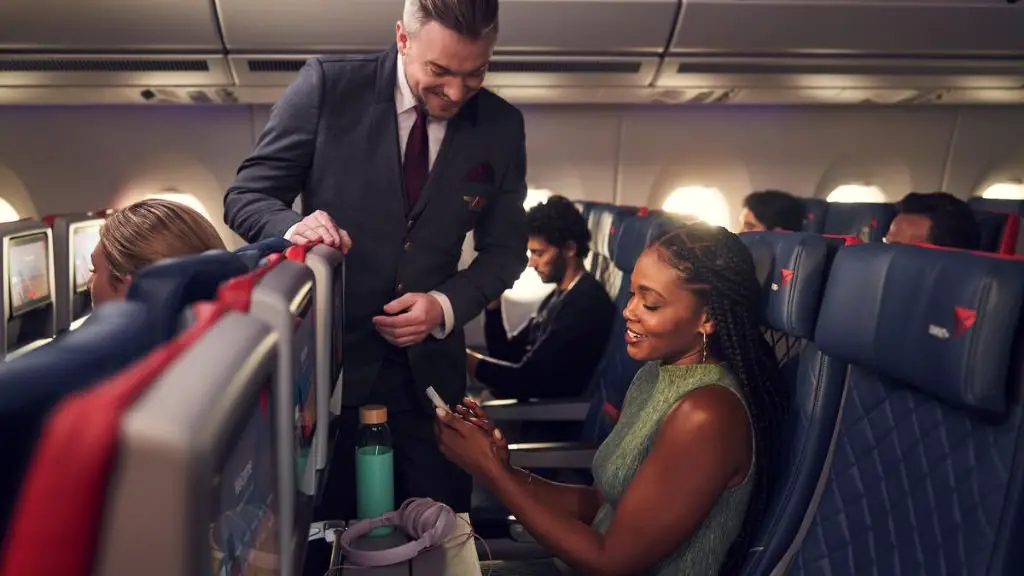
Seniority
In the world of aviation, especially among flight attendants, seniority plays a crucial role in determining both compensation and monthly scheduling. Delta, like all airlines, adheres to a seniority system, meaning the flight attendant with the longest tenure ranks as the most senior, while the newest member is considered the most junior in terms of seniority.
Delta’s most experienced flight attendant boasts a remarkable tenure of 56 years, achieving not only the peak salary level but also her preferred scheduling. Clearly, seniority significantly impacts both your pay scale and work schedule.
Flight Hours
Arguably the most critical factor, a Delta flight attendant’s salary largely hinges on the hourly wage earned per flight hour.
The calculation of a flight attendant’s hourly pay commences the moment the aircraft’s door is closed and continues until it reopens at the destination gate.
Note: The periods spent in the terminal, performing safety checks, as well as boarding and deplaning activities, are not compensated.
Geographical Location
The base of operation is another crucial factor. Flight attendants based in major hubs or high-cost living areas might receive adjusted pay scales to reflect the local economy and cost of living.
How Many Hours Does A Flight Attendant Work Per Month?
Typically, a Delta Flight Attendant’s work schedule ranges from 75 to 100 hours monthly. This profession offers flexibility, allowing for more or fewer hours based on personal preference, as it doesn’t adhere to a set schedule. A Flight Attendant logging around 100 hours a month might earn just over $3,000, equating to about 17 days of flying.
The number of hours worked can vary significantly from one month to the next, influencing earnings accordingly. While junior Flight Attendants might find themselves working up to 130 hours in a busy month, more seasoned staff may opt for a reduced, part-time schedule.
Delta provides an innovative system that allows Flight Attendants to adjust their schedules by either picking up additional flights for extra income or offloading some of their flights to others. This flexibility not only empowers them to manage their earnings but also to balance their work-life commitments effectively.
Benefits and Perks for Delta Flight Attendants
Delta Air Lines offers a comprehensive benefits package to its flight attendants, acknowledging their critical role in the airline’s success. Health insurance options provide comprehensive coverage, ensuring flight attendants have access to the best medical care. Retirement plans are another cornerstone of Delta’s benefits, helping employees secure their financial future post-career.
Travel benefits stand out among the perks, allowing flight attendants and their families to explore the world. These benefits include free or reduced-rate travel on Delta flights and discounted fares with partner airlines.
Additional perks enrich the employment experience, including discounts on hotels, car rentals, and access to exclusive deals on products and services. These benefits and perks underscore Delta’s commitment to its employees’ well-being and job satisfaction.
Read Also: How Much Do Flight Attendants Make
How to Become a Delta Flight Attendant?
Delta outlines specific requirements for aspiring flight attendants, including:
- Holding a high school diploma or equivalent (GED).
- Legal eligibility to work in the United States.
- Proficiency in English.
- Being at least 21 years old.
- Completion of full vaccination.
- Openness to serving on both international and domestic flights.
Candidates who fulfill these qualifications are encouraged to apply to become a Delta flight attendant. Successful applicants will be invited to participate in Delta’s comprehensive flight attendant training program.
Training and Career Advancement Opportunities
Delta invests in its flight attendants from the start, beginning with a rigorous training process that covers safety procedures, customer service, and emergency response. This training ensures that new hires are well-prepared to meet Delta’s high standards of service and safety.
Beyond initial training, Delta provides opportunities for professional development and career advancement. Flight attendants can pursue additional certifications, take on leadership roles, and participate in specialized training programs aimed at enhancing their skills and career prospects.
The impact of additional certifications and roles on salary and career trajectory is significant. Pursuing advanced roles within the flight attendant team or broader airline operations can lead to increased earnings, greater job satisfaction, and the opportunity to influence the future direction of Delta Air Lines.
Delta’s commitment to its flight attendants is evident in its competitive salary structure, comprehensive benefits, and opportunities for growth. These elements combine to make a career as a Delta flight attendant both rewarding and fulfilling, with the potential for personal and professional development.
Comparing Delta’s Salaries With Other Airlines
Delta Air Lines is known for providing competitive salaries and comprehensive benefits to its flight attendants, standing strong among other major carriers. When compared, Delta flight attendant salaries often align with or exceed those offered by other leading airlines, reflecting its commitment to attracting and retaining top talent.
Variations in pay across the industry can be attributed to several factors, including the size of the airline, its profitability, the specific routes it operates (domestic vs. international), and the cost of living in the airline’s base cities. Union contracts also play a significant role in defining salary scales and benefits, leading to differences from one carrier to another.
Industry reports and surveys provide valuable insights into salary trends, highlighting Delta’s position within the market. These resources indicate that Delta not only competes well in terms of base salary but also excels in offering an attractive package of benefits and perks, further enhancing the overall compensation for its flight attendants.
Also Read: American Airlines Flight Attendant
Conclusion
This article has explored the multifaceted role of Delta flight attendants, covering everything from salary structures and benefits to the personal and professional challenges faced by those in the field. Delta Air Lines stands as a leading employer, offering competitive compensation, comprehensive benefits, and significant opportunities for career advancement.
The outlook for flight attendant salaries and career opportunities at Delta is optimistic. The airline industry’s growth, coupled with Delta’s commitment to excellence, suggests a bright future for those pursuing a career in this dynamic field. Flight attendants play an indispensable role in the aviation industry, ensuring passenger safety and enhancing the overall travel experience. Delta’s recognition of this role through supportive practices and policies solidifies its position as a top employer.
Frequently Asked Questions (FAQs) about Delta Flight Attendant Salary
How can I become a flight attendant for Delta?
Applicants must meet the minimum qualifications, which typically include a high school diploma or GED, proficiency in English, the ability to swim, and excellent customer service skills. Candidates should apply through Delta’s career website, where current openings are listed.
What are the salary expectations for Delta flight attendants?
Starting salaries are competitive and increase with experience and tenure. Additional pay factors include language skills, working on international flights, and assuming leadership roles. The comprehensive benefits package further enhances the overall compensation.
When do Delta Flight Attendants Get Paid?
Delta flight attendants receive their wages every two weeks, with the payments reflecting the flight hours accumulated in the preceding fortnight. To ensure consistency between paychecks, each includes payment for half of the flight hours logged during that period.
How much do Delta flight attendants get paid per flight hour?
Starting out, a new Delta flight attendant earns an hourly wage of $30.96 for each flight hour. This rate increases with tenure at Delta, reflecting the value placed on experience and service length. After 12 years with Delta, a flight attendant reaches the maximum salary level. Thus, the length of service at Delta can significantly influence one’s monthly earning potential based on hourly wages.
What is the job application process like?
The process begins with an online application, followed by assessments and video interviews for selected candidates. Successful applicants are then invited to in-person interviews, after which job offers are made. New hires undergo rigorous training before officially joining the flight crew.
Are there opportunities for career advancement?
Yes, Delta offers numerous opportunities for professional development and career advancement. Flight attendants can move into leadership roles, participate in specialized training programs, and pursue certifications that can lead to higher earnings and increased job satisfaction.


